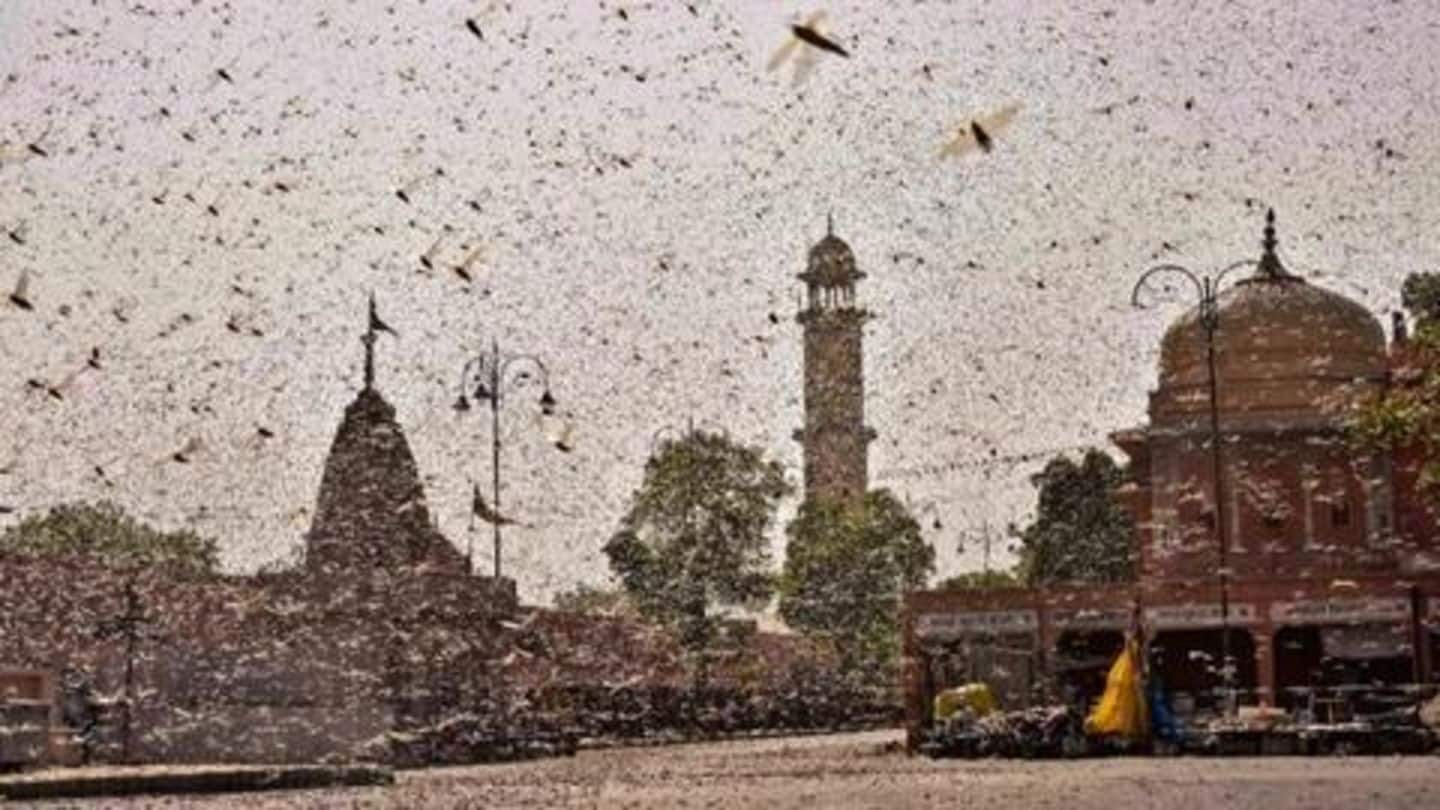Delhi braces for 'probable locust attack'; issues advisory
What's the story
The Delhi government on Thursday issued an advisory to help tackle a "probable locust attack."
Over the past few months, locust swarms have spread through parts of west and north India, destroying crops and entering residential areas.
The states of Madhya Pradesh, Punjab, Rajasthan, and Uttar Pradesh, are some of the regions that have been affected.
Here are more details.
Details
'Organize awareness programs; don't let locusts rest'
The Delhi government advisory called for organizing awareness programs for the public and farmers to prevent/control the probable attack of swarms of locusts in the national capital territory (NCT) of Delhi.
Concerned authorities have been advised to conduct spraying of insecticides/pesticides during the night to not allow locusts to rest. The insects are known to fly during the day time and rest at night.
Information
Advisory lists four chemicals to be used as pesticides
The advisory mentioned four chemicals that must be diluted in water to be sprayed as pesticides to tackle the swarms of locusts. These chemicals include Melathion 50% EC, Melathion 25% WP, Chloropyriphos 20% EC and Chloropyriphos 50% EC.
Twitter Post
You can view the advisory here
Delhi government issues advisory on preventive measures to tackle probable locust attack in the national capital. pic.twitter.com/3RjWriSZnx
— Prasar Bharati News Services (@PBNS_India) May 28, 2020
Recent developments
Delhi Labour Minister held meeting to discuss locust threat
Delhi Labour Minister Gopal Rai also convened a meeting at his residence on Thursday to discuss the threat of a locust attack.
The Ministry of Agriculture & Farmers' Welfare said on Wednesday that efforts to control locusts have been undertaken in 21 districts of Rajasthan, 18 of Madhya Pradesh, two of Gujarat, and one district of Punjab.
Quote
Control operations undertaken in 47,308-hectare area in 4 states
The Ministry said, "Till Tuesday, control operations against locusts have been done in 47,308-hectare area in total 303 places in Rajasthan, Punjab, Gujarat and Madhya Pradesh by LCOs (Locust Circle Offices)..."
It added, "89 fire brigades for pesticide spray; 120 survey vehicles; 47 control vehicles with spray equipment and 810 tractors mounted sprayers have been deployed for effective locust control."
Locust attack
Worst locust attack in decades
The locust swarms first originated in the Middle East after two 2018 cyclones facilitated an unusually long breeding period.
An official of the Faridabad-based Locust Warning Organisation (LWO), said this attack is the worst in 26 years.
The swarms are reportedly spreading to Maharashtra and Uttar Pradesh after causing substantial crop damage in Rajasthan, Gujarat, Madhya Pradesh, and Haryana.
